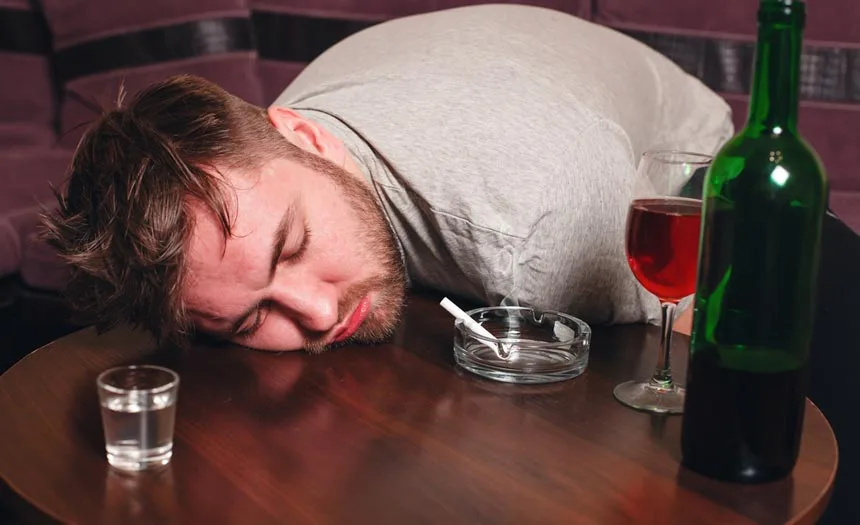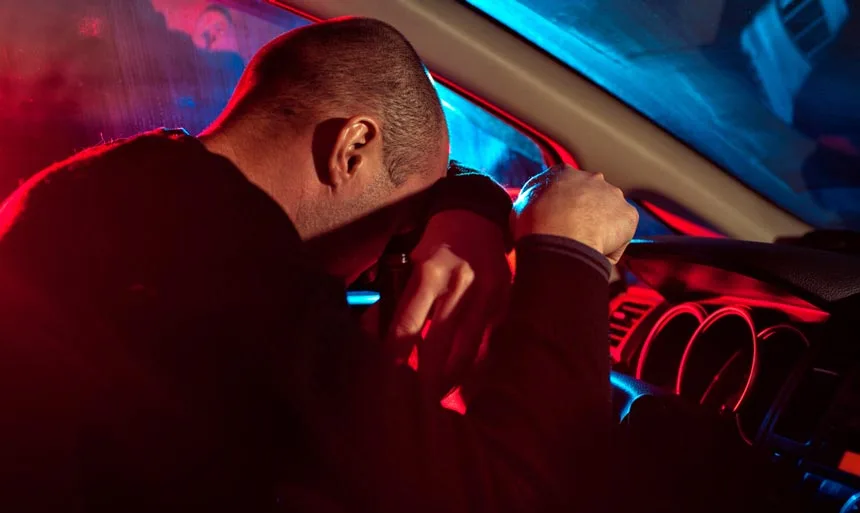The Risks of Memory Loss Due to Alcohol Consumption
Table of Contents
- The Risks of Memory Loss Due to Alcohol Consumption
- What is Blackout Drinking?
- Binge Drinking and Alcohol Induced Blackouts
- The Dangers of Alcohol Blackouts
- The Dangers of Alcohol Abuse
- How to Prevent Getting Blackout Drunk
- Recognizing the Signs of Alcohol Abuse and Alcoholism
- Alcohol Addiction Treatment Programs
- FAQs on Blackout Drinking and Treatment Options
- Stop Blacking Out and Get Help Today!
When enjoying a night out with friends or having a few drinks to celebrate a special occasion, it can be easy to get carried away with your alcohol use. While most people will get drunk once or several times in their life, it is another story to regularly experience blackouts induced by excessive alcohol consumption.
Keep reading to learn more about how alcohol abuse can lead to blackouts and memory loss, and how you can get help to stop drinking alcohol and get sober today!
What is Blackout Drinking?

The National Institute on Alcohol Abuse and Alcoholism (NIAAA) does a high volume of alcohol research and recognizes alcohol-related blackouts as gaps in a person’s memories after a period of heavy drinking. It is important to remember that blackout drinking and passing out are not the same thing.
While it is possible to lose consciousness with excessive drinking, blackouts refer to when alcohol interferes with the user’s short and long-term memory formation. This may also be referred to as alcohol-induced amnesia and involves total memory loss of the events that took place while drinking.
Binge Drinking and Alcohol Induced Blackouts
Most cases of alcohol-caused blackouts occur due to high-intensity drinking. This may also be referred to as binge drinkingor having more alcohol in a single instance than is generally recommended.
This is particularly popular amongst college students, although anyone who drinks alcohol is capable of binging. Some people may also experience partial memory loss when combining certain anti-anxiety medications or sleeping pills with their alcohol.
When drinking too much or mixing alcohol with other substances, can cause anterograde amnesia, or the inability to store or form new memories. This is because alcohol can weaken the connection between brain cells, impacting the user’s ability to learn and move new memories into long-term storage.
The rapid increase in a person’s BAC can cause blackouts to occur, and the phenomenon has less to do with the amount of alcohol consumed than an individual’s reaction and physiology.
The Dangers of Alcohol Blackouts

Unfortunately, the glamorization of getting blackout drunk by Hollywood and the media has made many people underestimate the very real dangers that come with drinking too much. However, no matter how the big screen may depict this, getting over-intoxicated can have irreparable side effects.
Getting blackout drunk can be dangerous for many reasons, and not just because it can affect a person’s long and short-term memory. Being intoxicated to the point of blackout can leave a person prone to several dangerous circumstances, including:
- Drunk driving can result in a DIU crash and potentially life-threatening injuries to both the intoxicated individual, as well as those around them.
- Unprotected sex, which can result in sexually transmitted diseases, pregnancy, and several other consequences.
- Illegal activities, such as theft, assault and battery, or abusing other substances.
Depending on how much a person drank, it is completely possible for them to engage in all of these activities and behaviors, yet remember none of it the next day. It is for this reason that it is never recommended to drink in excess and to always have a plan in place in case things get out of hand. You don’t want to be looking for a DIU rehab, not to mention having no memory of the incident that caused you to get a drunk driving charge!
The Dangers of Alcohol Abuse
Alcohol can have many effects on your body composition and health. If blackouts happen on a regular basis, this may be an indication that you are struggling with substance abuse.
There are many dangerous side effects that can occur from both short-term and long-term alcohol abuse, including:
- High Blood Pressure
- Liver damage/failure
- Liver cancer
- Brain damage
- Nutritional deficiencies
- Kidney damage/failure
- Heart damage
- Anxiety
- Depression
- Mood disorders
Alcohol Overdose Symptoms
Acute intoxication from alcohol, or alcohol poisoning and overdose, is a potentially life-threatening condition that occurs with excessive alcohol use. This can be measured by having a blood alcohol concentration (BAC) of over 0.30% to 0.40%. In comparison, the legal limit in most states will be around the 0.08% level.
Anything over this is considered to be a lethal amount of alcohol in the system. As of 2015, the Centers for Disease Control and Prevention (CDC) found that an estimated 6 people die every single day from alcohol poisoning in the US.
This unfortunate number can be greatly reduced by understanding the dangers of alcohol and how to recognize the signs of overdose. Because alcohol poisoning can be deadly if not properly addressed, knowing how to recognize the signs and symptoms of this condition can be life-saving. These include:
- Confusion and disorientation
- Loss of consciousness
- Slow or troubled breathing
- Vomiting
- Hypothermia
- Seizures
- Pale or blue-tinted skin
How to Prevent Getting Blackout Drunk
Getting drunk to the point of blacking out can be extremely dangerous. So, it makes sense to want to know how to avoid this side effect. Of course, the only way to make sure you will not experience adverse effects from alcohol is to simply avoid drinking altogether.
However, if you are planning on going to an event where alcohol is present, knowing how to avoid extreme side effects can make this experience much more enjoyable.
For starters, making sure to drink plenty of water in between your alcoholic beverages will be important for avoiding extreme intoxication or a potential Sunday or even Monday hangover the next morning.
It is also important to never drink on an empty stomach, as your body will absorb the alcohol more quickly and likely produce stronger and more dangerous effects. Unfortunately, for someone with a drinking problem, this may be easier said than done.
Recognizing the Signs of Alcohol Abuse and Alcoholism
With social drinking often seen as being completely acceptable, this has unfortunately led many people to abuse alcohol, sometimes even unknowingly. Once an alcohol dependence has formed, it can be incredibly difficult to drink less alcohol or stop using this substance entirely.
Knowing how to recognize the signs of an alcohol use disorder can help you or your loved one get the help you need to stop drinking and take back control of your life. There are several indicators that someone may be struggling with alcohol misuse and addiction, including:
- Experiencing a complete blackout from drinking on multiple occasions.
- Regularly participating in dangerous activities while under the influence of alcohol.
- Needing to drink more alcohol than usual in order to achieve the desired effect.
- Being unable to quit drinking on your own.
- Unsuccessfully trying to switch to non-alcoholic drinks or beer.
- Spending large amounts of time and money getting and using alcohol.
- Developing withdrawal symptoms when reducing or stopping alcohol use.
Alcohol Addiction Treatment Programs

If you are struggling with alcohol addiction, there are many treatment options available to help you overcome these habits and get clean. The first step in this process will, of course, be recognizing that you have a problem.
Once you have done this, you can seek out professional help for overcoming your habits of substance abuse. The exact type of treatment you will need can vary based on your specific situation and addiction severity.
With that being said, most people will begin their recovery process from alcohol abuse with a medical detox program. This is because alcohol addictions can have severe and potentially life-threatening withdrawal periods, which will need regular clinical support to be safely and successfully overcome.
This will usually be followed by inpatient or outpatient treatment, as well as behavioral therapies and medication-assisted treatment.
If you are ready to begin your recovery process and get the treatment you need, the Find Addiction Rehabs team is here to help you find effective and affordable rehab programs nationwide.
FAQs on Blackout Drinking and Treatment Options
How Much Alcohol is Too Much Alcohol?
While everyone’s tolerance is different, it is generally recommended that men have no more than two alcoholic drinks, while women are recommended to have no more than one. If a person drinks four or more drinks, this is considered to be binge drinking and can lead to several negative side effects, including a blackout.
How Can You Tell If Someone is Blackout Drunk?
Trying to figure out if someone is blackout drunk can be difficult. Everyone’s alcohol experience can vary, especially if they are frequent drinkers.
Even if someone has had enough alcohol to experience a blackout, they may be able to engage in conversation and other risky behaviors such as driving or unprotected sex without seeming significantly impaired.
Usually, the only way to determine if someone is at this level of this intoxication is if they experience memory blackouts the next day and are unable to recall the previous night’s events.
With that being said, behaviors such as slurring, personality changes, and increased risk-taking can all be used as signs that someone is intoxicated, possibly to the point of experiencing a blackout.
Stop Blacking Out and Get Help Today!
Alcohol abuse and alcoholism have affected millions of people throughout the US. If you are one of these individuals, know that you are not alone, and help is available. The Find Addiction Rehabs helpline is available 24 hours a day, 7 days a week to help provide recovery support to struggling individuals nationwide, anytime they need it.
Call now, and one of our representatives will walk you through the treatment process and help you find a rehab program that is capable of meeting all of your needs. Give yourself a break from the cycles of blacking out and take the first step on your path to sobriety, today!
Nicole R. is an experienced and accomplished writer with special interests in the fields of Anthropology, English, and behavioral health, and has written countless articles for newspaper publications, institutional research journals, and Find Addiction Rehabs.
Her alma matter is Florida Atlantic University in Boca Raton. Nicole hopes to spread awareness of and combat the stigmatization surrounding addiction and substance abuse treatment through her writing and work in the field.


